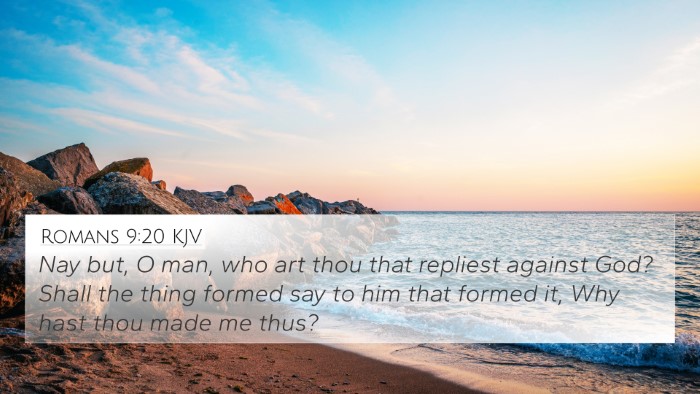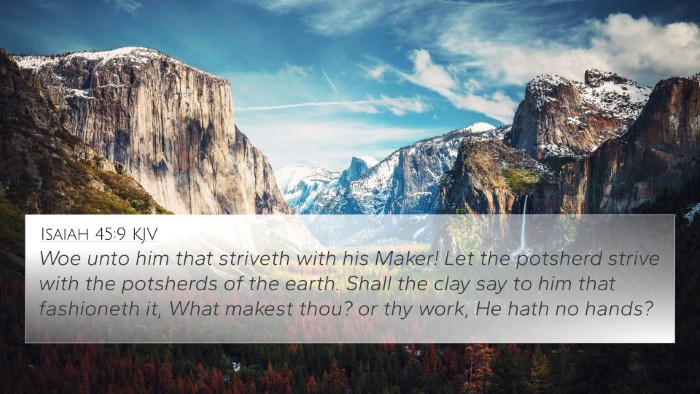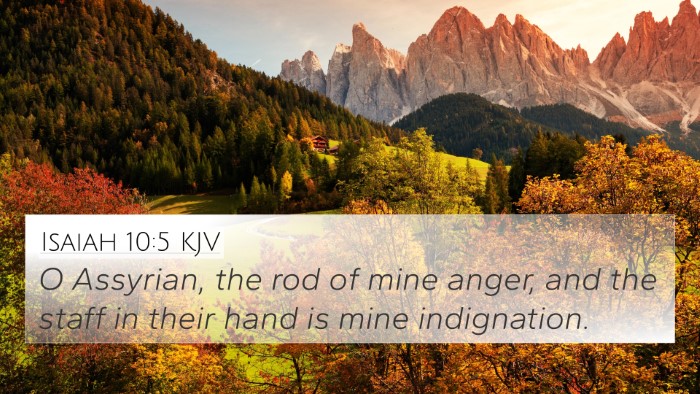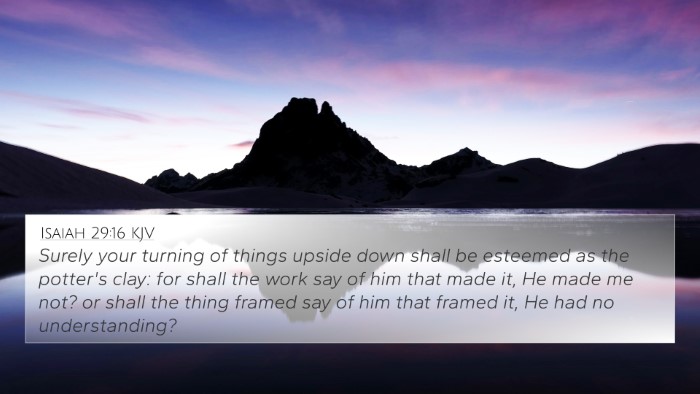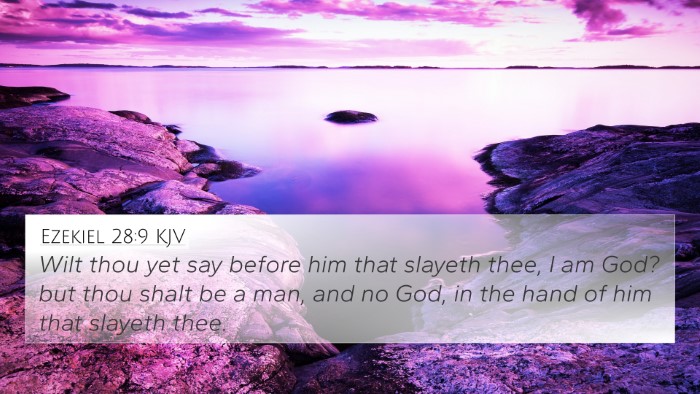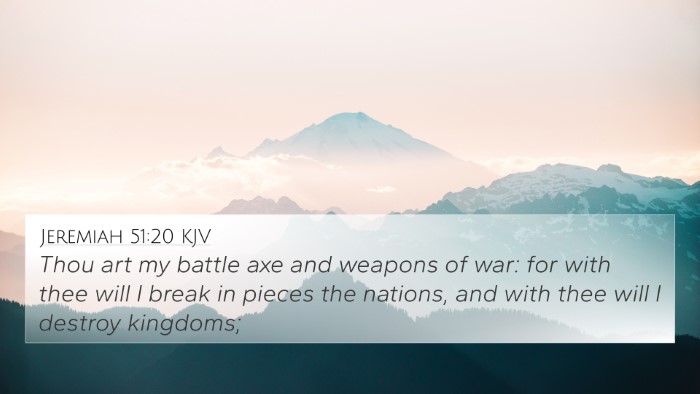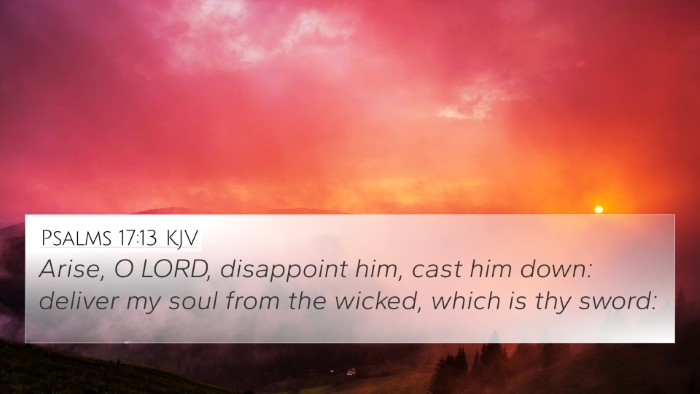Meaning and Interpretation of Isaiah 10:15
Verse: “Shall the axe boast itself against him who chops with it? Or shall the saw exalt itself against him who saws with it? As if a rod could wield itself against those who lift it up, or as if a staff could lift itself up, as if it were not wood!” (Isaiah 10:15)
Overview of the Context
The context of Isaiah 10 involves a dire warning delivered by the prophet Isaiah regarding the Assyrian empire, which God utilized to bring judgment upon Israel for their unfaithfulness. This verse serves as a criticism of the Assyrian king's pride and self-reliance in believing that his own strength, rather than God, was the source of his power.
Commentary Insights
- Matthew Henry:
Matthew Henry emphasizes that the imagery of the axe and saw illustrates the folly of pride. It serves to remind readers that the instruments used in God's judgment are nothing on their own. The Assyrian king is depicted as overly confident, failing to recognize that he is merely a tool in the hands of the Almighty.
- Albert Barnes:
Albert Barnes points out that this verse serves as a rebuke to those who believe they possess power independent of God’s will. He explains that the axe and the saw represent instruments incapable of boasting about any successes achieved through their use. The sovereignty of God is paramount in this passage, highlighting that human strength is ultimately futile without divine support.
- Adam Clarke:
Adam Clarke adds to this interpretation by noting how the verse warns against the arrogance of nations that consider themselves invincible. He presents a thorough analysis of the metaphor, suggesting that just as tools cannot take credit for their function, neither can powerful rulers claim glory for victories achieved through God's allowance.
Thematic Connections and Cross-References
Isaiah 10:15 prompts a broader reflection on themes of divine sovereignty, human pride, and the limitations of human power. Below are several relevant Bible verses that connect with these themes:
- James 4:6: “But he gives more grace. Therefore, it says, ‘God opposes the proud, but gives grace to the humble.’”
- Psalms 75:4-7: “I said to the boastful, ‘Do not boast,’ and to the wicked, ‘Do not lift up your horn; do not lift up your horn on high, speak with a stiff neck.’ For not from the east or from the west and not from the wilderness comes lifting up, but it is God who executes judgment...”
- Proverbs 16:18: “Pride goes before destruction, and a haughty spirit before a fall.”
- Isaiah 2:12: “For the Lord of hosts has a day against all that is proud and lofty, against all that is lifted up—and it shall be brought low.”
- Jeremiah 9:23-24: “Let not the wise man boast in his wisdom, let not the mighty man boast in his might, let not the rich man boast in his riches; but let him who boasts boast in this, that he understands and knows me…”
- 1 Corinthians 1:27-29: “But God chose what is foolish in the world to shame the wise; God chose what is weak in the world to shame the strong…”
- Job 12:16: “With Him are strength and prudence; the deceived and the deceiver are His.”
Conclusion
In summary, Isaiah 10:15 serves as a significant reminder of the role of humility in the face of divine authority. The use of allegorical language demonstrates how God desires His people—and nations—to recognize their reliance upon Him rather than boast in their self-proclaimed power. This analysis invites further exploration into both the Old and New Testament, encouraging believers to draw connections between scripture and gain a deeper understanding of God’s overarching narrative.
Tools for Cross-Referencing
To fully engage in comparative Bible verse analysis, one may utilize various tools for Bible cross-referencing:
- Bible concordance
- Bible cross-reference guide
- Cross-reference Bible study methods
- Bible reference resources
- Bible chain references



